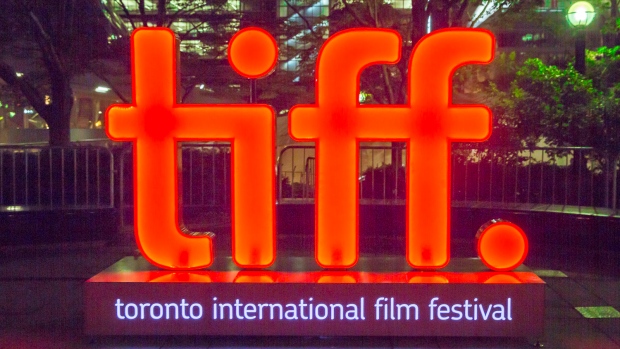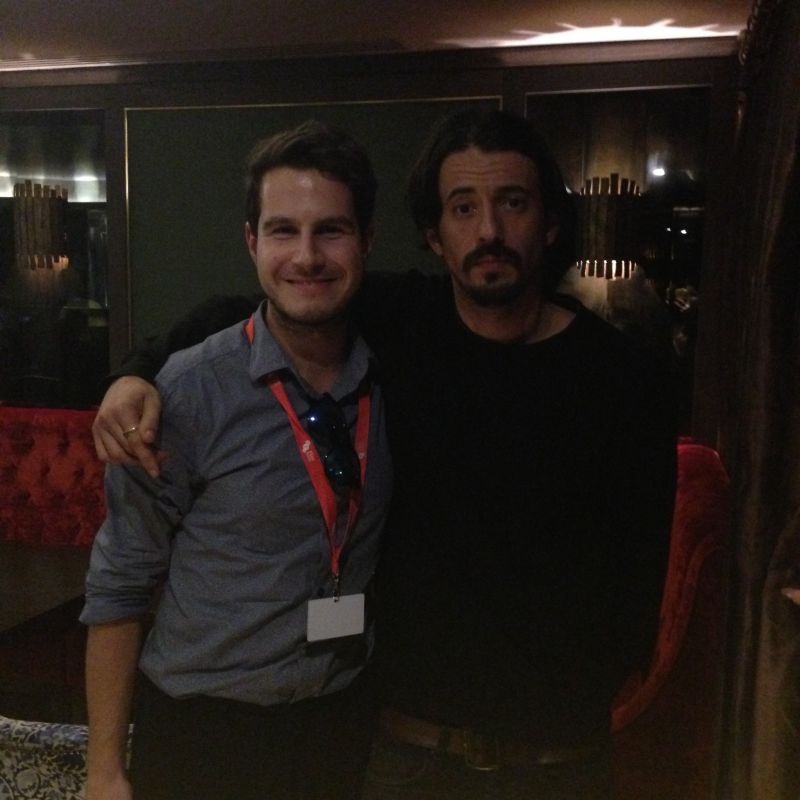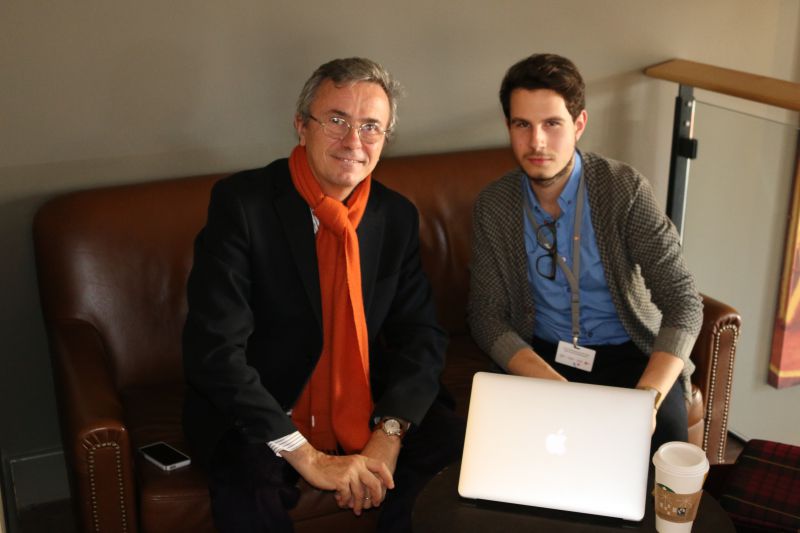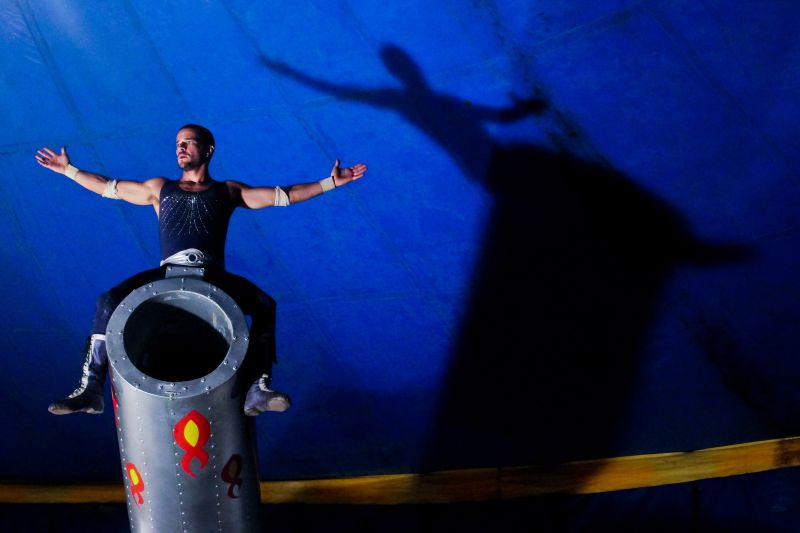|
|
||
|
Pro Tools
FILMFESTIVALS | 24/7 world wide coverageWelcome ! Enjoy the best of both worlds: Film & Festival News, exploring the best of the film festivals community. Launched in 1995, relentlessly connecting films to festivals, documenting and promoting festivals worldwide. Working on an upgrade soon. For collaboration, editorial contributions, or publicity, please send us an email here. User login |
Berlinale 2015 Interview: Lirio Ferreira for Blue Blood
Interview with Lirio Ferreira, director of Blue Blood - opening film of Berlinale Panorama 2015
Lirio Ferreira was born in Recife in 1965. He started directing films while studying journalism. His first feature Baile Perfumado premiered at the Toronto Film Festival in 1997, followed by Árido movie (2005) and many documentaries that have won numerous prizes in Brazil and beyond. Blue blood is his third feature film, opening this year’s Berlinale Panorama.
How did get the inspiration to do Blue Blood? Did your career so far, mainly in documentary filmmaking, influence your idea?
This film can be a documentary and fiction, an action and thriller film at the same time. There are so many interpretations because of the epic, mythological background of the story. I made two documentaries before, both for Brazilian musicians and one of them inspired the soundtrack of Blue Blood - this is a real connection between my work, if you like.
Why did you decide to make your protagonist a circus performer? Does the circus fascinate you? (I remember that as a kid I was going to the circus a lot and it was a fantastic form of entertainment, which is kind of lost nowadays. With the film I felt like being six again.)
I share your feeling exactly. I always imagine circus with lot of physical performances, not only animals or jongleurs as it has ended up being today. But also cinema itself is going through a transition, today even faster. My film is probably one of the last shot in 35 mm as the digital era is progressing. This is how I see the connection between cinema and circus - they both have change and no one could really expect or foresee their future.
Do you see the film industry as a circus?
As I said, we cant know what we will see in five years time. There are so many ups and downs. But I like a metaphor Tarantino used, that since we don't use film anymore, cinema is gone. Well, or at least cannot be the same, ever.
Why did you choose the title “Blue blood” in particular?
I would like to tell you all the possibilities and you can pick your favourite. Blue is for the sea - the deeper you dive the more blue you get; the inhabitants of the island and the circus group are both closed societies and their blood is mixing remaining in the same always place; also, when the Africans went to Brazil and brought their religion and traditions, there was the god of the sea. The mother in the film is religious and there is a scene where they dance on the beach and there is a blue statue of the god, looking at the open sea. People still believe at its powers.
You did very interesting camera work. Especially because the film begins in black and white and then it swifts to colour. Is there a specific intention each time, something you really wanted to show?
First, I wanted to make some sort of division between the real and the fictitious. So the black and white part is somehow like taken from the past and then we get transferred to reality, to the ‘now’. But also, there is a film from Eisenstein, Ivan the terrible, that is all black and white and then there is a dancing scene at the end, the only in colour. This film is really important and has impacted a lot my filmmaking.
Although the film depicts life in contemporary Brazil, there is a lot of traditional motives - in people’s lifestyle, in the music choices you've made - would you consider Brazil a country with strong traditional spirit that doesn't appear in contemporary Brazilian cinema?
In the film itself, there is no specific timeframe, you lose track of time. You also don't know how long the circus is going to stay for example. There is also the old man that is a mysterious character, appearing throughout the story and also in the end, mixing up with the characters as they grow up and evolve. In addition, the island where the story takes place is cut-off and the modernity needs more time to arrive.
Not only in Brazil, but in many countries it is still very common for parents to make choices for their children, even if its not for the best - just like Pedro’s mother did for him in order to protect him. Does this still exist in Brazil?
Yeah, it happens sometimes, its unavoidable. But, Pedro’s mother specifically was driven by the fact that in the island they had more boys than girls - so she decided to keep her safe and protected and send the boy away.
Pedro has evolved into the ultimate macho young man who finds in his sexual adventures a kind of escape from ‘serious life’. Did you see it that way when creating his character?
The island itself is sort of an aphrodisiac. It attracts tourists to come and explore this naturally erotic atmosphere. The main character could had been a contortionist for example, but I decided to make him a “cannon-man” , which implies some kind of sexual attraction. Also, as he was separated from his sister as a child, without knowing the answer, he used his sexuality as a way of understanding and exploring the world; and this of course adds some potential to the romantic part of the film.
Which was the most challenging scene to shoot? The one where Pedro and his mother stay alone and talk about the past perhaps?
Yes, absolutely - it was one of the most difficult ones. It was a very intense day in the shooting process. Now, from the physical point of view, I would say that the scene where Pedro and his sister are swimming and we had to dive all together in order to shoot it under the water was quite risky for all of us. We shot at 22 meters depth. 07.02.2015 | Martin I. Petrov's blog Cat. : 2015 Berlin Film Festival berlinale berlinale 2015 blue blood blue blood film Fest directors Interview lirio ferreira sangue azul
|
LinksThe Bulletin Board > The Bulletin Board Blog Following News Interview with IFTA Chairman (AFM)
Interview with Cannes Marche du Film Director
Filmfestivals.com dailies live coverage from > Live from India
Useful links for the indies: > Big files transfer
+ SUBSCRIBE to the weekly Newsletter Deals+ Special offers and discounts from filmfestivals.com Selected fun offers
> Bonus Casino
User imagesAbout Martin I. PetrovThe EditorUser contributions |
























 Petrov Martin
Petrov Martin 


